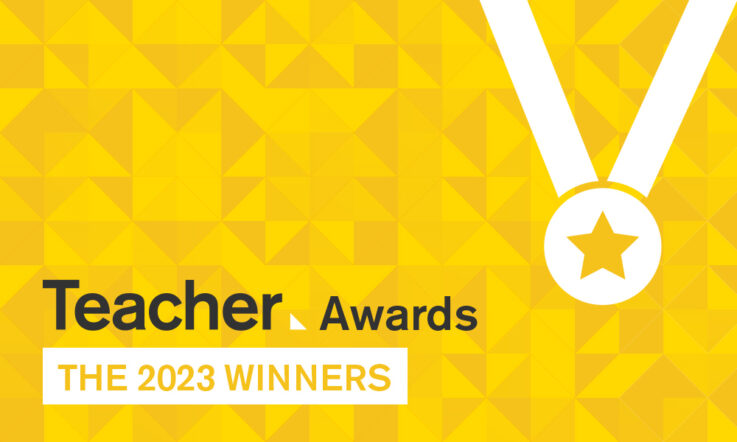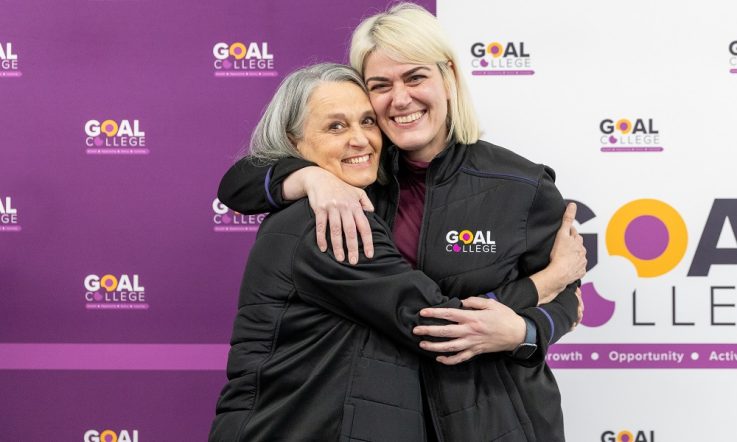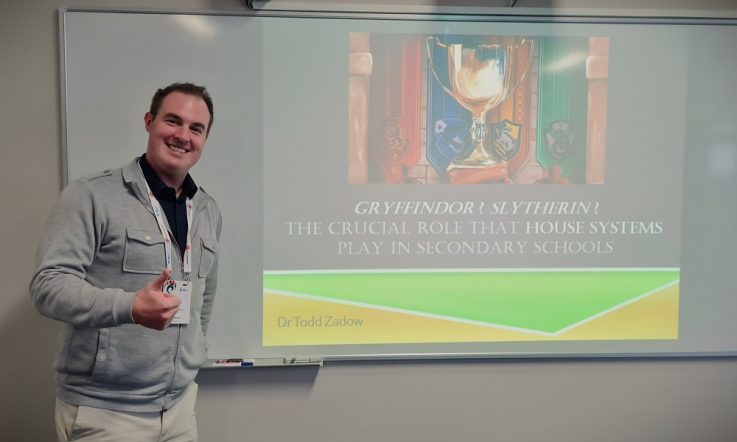Last month, we were delighted to announce the winners of the inaugural Teacher Awards. The winners for our 8 award categories represent all school sectors and hail from 5 Australian states. So far, we’ve shared the stories of the winners from the Improving Health and Wellbeing category and Cultivating an Inclusive and Positive Culture category. Over the next few months, we’ll continue to share the stories of all our 2023 winners.
In this article, we speak with Melanie O’Leary and Marcia Burgess from Catholic Education South Australia (CESA) who were named winners, alongside their other team members, of the Excellence in Curriculum Design and Implementation Award, sponsored by Grok Academy.
The design and implementation of a new whole-school or subject specific curriculum is a big undertaking, and relies on collaboration, consultation, monitoring and evaluation. The Curriculum Design and Implementation category in the Teacher Awards is open to an individual or team who are in progress of or have already implemented a curriculum project.
For 2023, the winners for this award category are Melanie O’Leary, Marcia Burgess, Louise Murphy and Deborah Hansen from CESA, and Adriano Di Prato and Dr Phil Cummins from the global educational network, a School for tomorrow.
‘It was a real honour to win this award and to be recognised for the brave step that we had taken to develop a model that was fit for purpose for Catholic Education … a lot of creativity went into that,’ Marcia Burgess, CESA Senior Education Advisor: Religious Education Curriculum, tells Teacher.
‘The esteemed group of judges that you had on your panel – it's just so wonderful that they saw our work and thought this was something great happening in the field of education,’ Melanie O’Leary CESA System Coach: Learning, Assessment and Pedagogy Years 7-10, and lead of this curriculum project, tells Teacher.
A creative solution to address student needs
The curriculum project the team has been recognised for is called Limitless Possibilities. It was described in their nomination document as ‘a model of social entrepreneurial learning accessed through a digital toolkit, for all 103 CESA schools … [that] empowers students to recognise and innovate for a socially just, equitable and sustainable world.’ Their aim is to ‘support teachers to integrate social entrepreneurial learning seamlessly into their daily classroom practice.’
Limitless Possibilities draws on a body of entrepreneurial education research and is underpinned by Catholic Social Teaching Principles, explicit teaching and inquiry methodologies such as Problem-Based Learning (PBL) and Design Thinking. The digital toolkit includes in-school video examples of the 5 stages of Design Thinking that were produced by Hugh Fenton from Enlightening Education Films.
Our Judging Panel recognised the research- and evidence-informed approach utilised. ‘Limitless Possibilities is well designed using relevant research and knowledge, adequately piloted and then implemented,’ they commented. ‘It has a sophisticated yet practical approach to blend various teaching methods into an interesting whole that address some of the important current issues in school education.’
As Melanie O’Leary shares with Teacher, examples of students working through Limitless Possibilities are: ‘a student who has a passion about digital technology and gaming might want to create a virtual game which is teaching others about social inclusion. Or, we currently have a group of students at the moment who are really interested in marine biology and ocean sustainability who are looking at innovative ways of regenerating one of our reefs here in South Australia.’
A focus on student voice
A key element of the criteria for this award is valuing student agency and voice during the implementation and design process. For the CESA team, opportunities for feedback loops were important, and this included collecting student feedback.
‘One example of this was the learning continuum that we created. We wanted it to be written in student friendly language because this was for students to reflect on their progression from novice to innovator. We developed the continuum, and we sent it out for consultation, and we kept getting the feedback, “it's not student-friendly language enough”. So we heard that really clearly,’ Burgess says.
‘The feedback was essential, really, because we didn't want to assume that we're experts. The experts really were industry experts, the teachers and more importantly, the students themselves.’
It’s also hoped that Limitless Possibilities can help address the fact that existing research shows many young people are feeling a sense of hopelessness about the word. ‘We think that engaging students in social entrepreneurial learning can flip this state of hopelessness into one that's hope-filled, by allowing young people to see that they actually have the ability to be changemakers,’ O’Leary reflects.
Supporting staff through the implementation phase
The award criteria also recognises the importance of supporting staff the implementation process.
‘I think it's really important that if we want to provide our students with agency and advocacy in the classroom, then we need to provide that for our teachers, too,’ O’Leary reflects.
Two masterclasses were developed for Limitless Possibilities to help teachers build capacity in designing intentional curriculum inclusive of learning intentions and success criteria, and PBL and Design Thinking methodologies.
The work on Limitless Possibilities is not over for CESA. ‘I think if we embrace design thinking mindsets ourselves … the work will never be done. It will be constant iteration of continuing to engage and get feedback from our teachers and students who are part of this program so that we can continue to make the model better and continue to develop more resources that are needed as well,’ O’Leary says.
‘Our purpose as a system is to shape thriving learners who can use their agency, their innovative thinking, and their entrepreneurial mindset to contribute to a more socially just, equitable, and hope-filled future; that's our main purpose. So we are hoping that through this model, students are able to see that there are limitless possibilities for noticing and acting on issues of injustice,’ Burgess says.
Teacher Awards will be returning in 2024! The Teacher Awards recognise work that’s been completed in the past 12 months, so it’s not too early to start thinking about your nomination for 2024. You can browse the specific criteria for this award, and the other 7 categories, here, and our FAQ page for the Teacher Awards here.
Think about a new project or initiative in the process of being introduced in your school setting. What opportunities are included in the implementation process for encouraging student voice?



